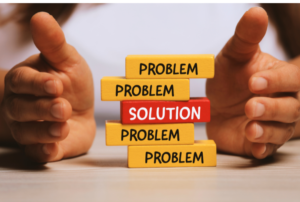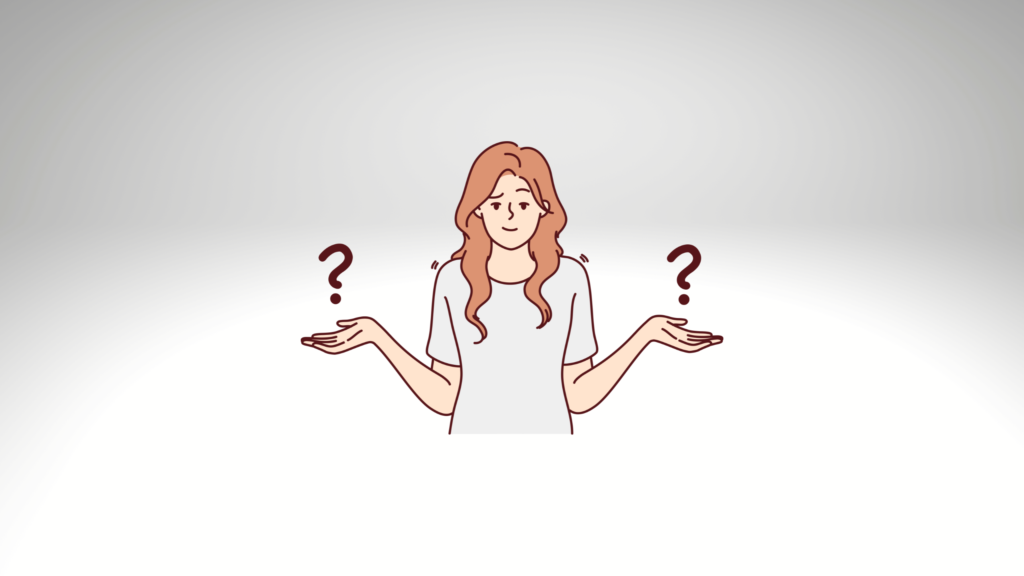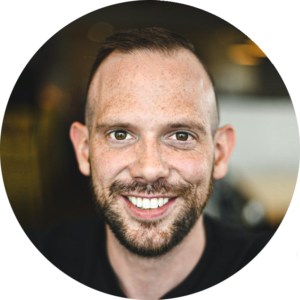Today, we are taking a break from the drugs and dishing on psychology; in particular, I want to talk about choices.
It’s a common theme on social media and life in general that Obesity is a choice. Even individuals who have Obesity and they may or may not have lost weight will say it is a choice. They chose to be fat, and it’s these individuals’ choice to eat a Double Big Mac and fries instead of a salad.
Based on that logic, individuals that have Obesity just need to choose to eat less and move. That’s it. Problem solved. So why haven’t you put down the fork and gone for a walk? Other than the fact you love reading my articles?
Oh, wait. You are probably already choosing to move more and eat less. And you have continued to struggle with your weight. So what gives?
Perhaps it’s not so simple. Perhaps our choices are based on something other than logic and rational reasoning. Maybe there is more to it?
Are we rational? AND Logical?
 It is a common belief that humans are rational and logical beings. And with conscious effort, humans will make decisions and choices that are in the best interest of the meat sack of organs that carries their consciousness around as well as their overall well-being. Psychologists have fortunately a theory for this idea called Rational Choice Theory.
It is a common belief that humans are rational and logical beings. And with conscious effort, humans will make decisions and choices that are in the best interest of the meat sack of organs that carries their consciousness around as well as their overall well-being. Psychologists have fortunately a theory for this idea called Rational Choice Theory.
Rational Choice Theory postulates that individuals will carefully evaluate all decisions, weighing the costs and benefits of each potential path and then choosing the path that would be most beneficial to them.
Basically, this theory assumes everybody makes a pros and cons list for each potential choice they have to make, then purely through logical and rational reasoning, they make the choice that will bring them the most benefit. Seems simple enough, right?
Okay, so we ARE logical and rational all of the time.
But, based on the internet’s logic, people with Obesity seem to do the opposite. Why would they consciously keep eating more and moving less if it could have potentially adverse consequences? Well, clearly, it is because they want to be fat!
So, what about people who smoke? What about people who drive race cars or play with fireworks without safety glasses? Or how about every single one of us who decided to keep hanging out with that toxic ex even though it was destroying our mental health? Sure, the sex might have been great, but five years of therapy later and I, ahem, WE are still unpacking that mess.
We are the most evolved or advanced animals on the planet. Our logic and reasoning capabilities are far superior, but it seems a family dog makes better day-to-day decisions than you. If we just look at how they chose to let themselves become domesticated, humans can ‘choose’ to continuously feed, entertain, and pick up their poop. How about that for logic and rational choices?
Any who, hopefully, it’s clear Rational Choice Theory has a few holes, and we all may or may not actually be idiots. Or the choices we make are not solely driven by logic and reason. In order to hammer this point home, I want to tell you a story.
I love story time!

Once upon a time, there was a great guy named Elliot. Elliot, by all accounts, was a decent, well-rounded individual. He had a good job, a family and kids and was generally well-liked. However, one day Elliot started experiencing crippling headaches. After trying a few remedies and then finally going to his doctor, it was found that Elliot had a baseball-sized tumor – hanging out in the front part of his skull?
“Well, that there’s your problem,” I am assuming was what his physician said while reviewing Elliot’s scans with him. Elliot was then promptly prepared for surgery to have the tumor removed. The surgery was a success, the entire tumor was removed, and Elliot was sent on his way to continue living his life. However, something about Elliot changed after his surgery.
He was still charming, had no problems conversing with others, and seemed fully in control of his faculties. However, his work and home life started to fall apart. He left countless projects at work unfinished, skipped client meetings, and could not decide on the simplest tasks, such as whether he should use a black or blue coloured pen or where to park his car. Initially, people cut him some slack, given the poor guy had a tumor removed. Unfortunately, these things continued and after losing his company and a substantial amount of money he was fired.
Things at home were not much better. Elliot would skip his kids’ little league games to watch TV. He would go days without speaking to or acknowledging his wife. He’d go to the grocery store to pick up tomatoes and come back four hours later with nothing because he couldn’t figure out which tomato to choose. He would fight with his wife; however, it couldn’t be called a fight if only one person actively participated. Eventually, Elliot became divorced.
From here, Elliot remarried and then divorced again when a woman took advantage of him; he then lost most of his savings in a bad investment, he couldn’t hold down a job, and he effectively became homeless. In the blink of an eye, a once successful family man had destroyed his entire life. Nobody could believe it.

Fortunately, Elliot’s brother started taking him to doctors. Multiple doctors later, doing doctor things, it was found that Elliot was perfectly normal. His IQ was above average. Physically everything checked out. He still had a great memory. There were no cognitive deficits or mood disorders. However, he could not make any decisions, and daily tasks were nearly impossible.
Finally, Elliot was referred to a neurologist named Dr. Antonio Damasio. Damasio did many of the same tests done previously and found similar results. Then Damasio did something the other doctors didn’t. He simply sat down and talked with Elliot.
Damasio described some of his findings:
‘Elliot emerged as a man with normal intellect who was unable to decide properly, especially when the decision involved personal or social matters.’
‘He was always controlled. Always describing scenes as a dispassionate, uninvolved spectator. Nowhere was there a sense of his suffering, even though he was the protagonist. I never saw a tinge of emotion in my many hours of conversation with him: no sadness, no impatience, no frustration.’
Elliot was an emotional black hole and incapable of making decisions. This was when Damasio made the realization that everyone had been preoccupied with his intellect, but that wasn’t the problem. To confirm his hypothesis, Damasio printed off several horrible and grotesque images that should evoke an emotional response in normal people. He then showed the images to Elliot and measured if they triggered an emotional response.

Elliot didn’t have a response or reaction. Effectively, he felt nothing. Even while looking at the photos, Elliot could identify how messed up it was that he didn’t feel anything. He knew he would have felt something in his past life, but now – nothing.
Damasio concluded:
“We might summarize Elliot’s predicament as to know but not feel.”
In losing the ability to feel, Elliot also lost the ability to assign any meaning to the world around him, including his choices. To him, watching paint dry evoked the same emotional response as watching his kid graduate high school.
This was an unexpected discovery. For millennia, it had been thought that emotions were an irrational nuisance. Philosophers and religious leaders have preached about the importance of learning to control one’s emotions. If one could control or become devoid of their emotions, one would become a logically unstoppable badass. No more emotions telling us to get a dog because they’re cute, and it will be fun to pick up their poop.
However, Elliot and a number of other patients Damasio went on to study disproved this idea. Thanks to a brain tumor, Elliot achieved what philosophers have been working towards for centuries.
Unfortunately, Elliot did not become the ultimate logical badass; rather, quite the opposite.
A man devoid of emotion turned his life into a dumpster fire.
Whoa – so it’s good to be emotional?

We now know a brain that can’t feel or make up its mind. Emotions drive our choices. Emotions are complex. They are influenced by experience, trauma, genetics, environment, and so on. This list is endless. Hence two people can witness the same event and have entirely different emotional responses. Similarly, when two individuals are presented with a series of choices, which we now know are emotionally driven, they may make very different choices.
Individuals who have Obesity have known factors such as childhood trauma, discrimination, genetic differences, etc., all of which will play a role in their emotions. And thereby, their choices. This does not mean that all hope is lost and that we are forever slaves to our emotions. We can learn how to make better choices. To do this, we must learn to align our emotions in the same direction as our logic and reasoning capabilities.
That, however, will be an article for another day! For now, that brown coil your dog left in the backyard is calling your name, and I know you can’t wait to go pick it up!
References:
https://www.smh.com.au/national/feeling-our-way-to-decision-20090227-8k8v.html
—Stay tuned for future articles, and of course, always remember
– small tweaks lead to massive peaks.
Until next time!
 Dr. Dan
Dr. Dan
Follow me on social media for regular updates – @TheOfficialDrDan
Subscribe to my newsletter for a heads-up on all new content.
Sharing is caring! Here’s the link for social, email, and even text – https://healthevolved.co/choices
If you need some coaching support on your weight management journey, you can book a consultation with me to see if you’d be a good fit for our program.
Questions or comments? Please send them my way on our Contact Us page!



 Dr. Dan
Dr. Dan



